#trader indonesia
Text


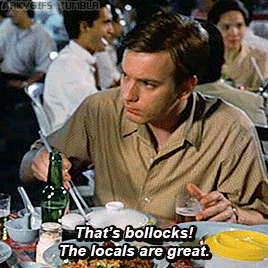
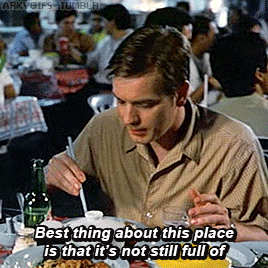

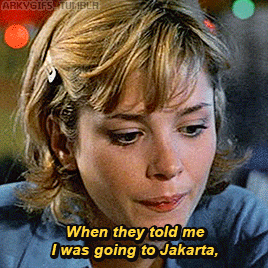
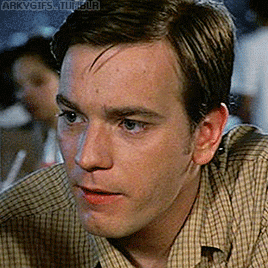
Rogue Trader (1999)
#Rogue Trader#James Dearden#Nick Leeson#Ewan McGregor#Anna Friel#arkygifs#thank u ewan for getting to play a character that says indonesia's cool ❤️🤍
8 notes
·
View notes
Text
Dianggap Representasi Jokowi, Komunitas Trader Sembako Jember Dukung Prabowo-Gibran
JEMBER, (News Indonesia) – Tingkat kepuasan publik terhadap pemerintahan Presiden Joko Widodo sangat tinggi. Bahkan jelang purna masa baktinya kepercayaan masyarakat mencapai 75 persen berdasarkan survei Indikator Politik Indonesia November 2023.
Capaian positif ini tidak terlepas dari sejumlah program Jokowi yang dinilai mengena di masyarakat.
Faktor ini pula yang mendorong Komunitas Trader…
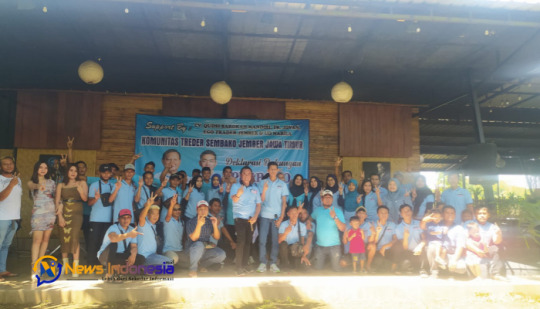
View On WordPress
#Berita Jember#Komunitas Trader Sembako Jember#Komunitas Trader Sembako Jember Dukung Prabowo-Gibran#News Indonesia#Prabowo-Gibran#Representasi Jokowi
0 notes
Text
Which direction will Indo-Asean trade take?
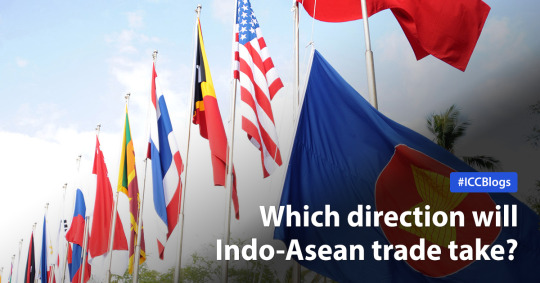
India’s Act East Policy is centered around its relations with the Association of South East Asian Nations (ASEAN) and the ASEAN-India Trade in Goods Agreement (AITIGA), which has consistently been at the core of deliberations for over a decade now. Today, all sides feel the need for a review and recast of the free trade agreement (FTA) in terms of user-friendliness and trade felicitation. Post the implementation of AITIGA in January 2010, exports between India and Asean have grown at a CAGR of 2.08% during 2010-20 while imports have grown by 4.5% during the same period. Apart from the increasing trade deficit other issues such as rules of origin, and nontariff barriers remain unresolved. Therefore the scope of review of the FTA must include: (a) Tariff reduction and elimination (b) Rationalization and streamlining of Non-Tariff Barriers which is a major barrier to Indian exports to ASEAN (c) simplified and uniform Customs procedures in India and ASEAN (d) standardization of operating procedures on Certificate of Origin (e) Economic and Technical Cooperation and (f) protection of indigenous industries for achieving Atmanirvar Bharat.
What else should it include? Do write to us.
#iccblogs#asia#china#india#indonesia#thailand#japan#instagood#asian#world#malaysia#korea#southeastasia#singapore#traders#trademarketing
1 note
·
View note
Text
How to Do a Forex Broker Commission Comparison
If you're a beginner trader, the first step in figuring out which forex broker is the best is determining the commission. A forex broker has to adhere to local laws and regulations that ensure the protection of their investors' funds. There are many different regulatory bodies in the world, each with their own set of rules. While the financial markets have many different regulations, you can use the following tips to choose the best one. Regulatory status is important because it indicates which brokers are regulated by a tier one regulatory body. Traders can also check the status of the forex broker by looking for whether they are regulated by a tier 2 or tier 3 authority.
The commissions and fees charged by different forex brokers depend on several factors, including the asset being traded. In addition, a forex broker may charge a commission for trading services that are free. Another consideration is the spread, which is the difference between the highest bid and lowest ask for a particular asset. This difference determines the amount of leverage, which is the amount you can trade. You should check if a broker charges a commission for each type of trade. A forex broker's commission is a good indicator of their overall reliability and trustworthiness.
NeoBux is a cryptocurrency. This is the newest trend in trading. Unlike other currencies, it has no central bank and can be traded globally. Besides cryptocurrencies, forex brokers are regulated by a regulator. The CFTC carries the responsibility of ensuring the safety of your money. However, you should be wary of any broker that offers free trading, as it is highly unlikely to be regulated. The commission rates charged by Forex brokers are not the same for all countries.
Choosing the best forex broker can help you maximize your trading success. Fortunately, there are several criteria to consider in forex broker commission comparison. Choosing the best one requires a good deal of research and effort. Despite the fact that there are hundreds of forex brokers, there are some universal standards. For example, the trading platform should be easy to use and simple to navigate. Ultimately, it's up to you to decide which broker will best suit your trading style and preferences.
When comparing forex broker commissions, make sure to consider all the different funding options. Some forex brokers only offer one or two instruments. While others offer many, it's best to stick with major currency pairs. These are the ones with the most volume of trading daily. forex ltd co uk trade mt4 should include both spreads and fees, as well as the exchange rate. A few other factors to consider include the cost of trading, currency types, and market types.
The most important of these is the broker's reputation. You want a firm that offers a fair commission. A Forex broker that does this should be able to deliver a good service and provide competitive rates. Forex broker commissions vary widely from one broker to another, and comparing them can be challenging. For this reason, it's important to find one that's right for your trading style. The best options may not be as obvious as the best, but they are worth considering.
#track n trade forex#trade and forex jobs#trade city forex#trade daily charts forex#trade forex like the banks#trade of the day forex#trade union forex#trader dale forex course#trader forex profesional#trader forex sukses indonesia#trader forex terkaya di malaysia#vladislav forex trader#what is a retail forex trader#what is traded in forex#what qualifications do you need to be a forex trader#what time is the best time to trade forex#what type of forex trader are you#when to close a trade in forex#when to enter a trade forex#where to trade forex for free#where to trade forex in india#where to trade forex in malaysia#which banks trade forex#who is the best forex trader#why do we trade forex#world trade academy forex#world trade investment forex#16 year old forex trader#20 year old forex trader#accurate forex trader
1 note
·
View note
Text
My best guesses on which cultures/countries Tamora Pierce bases her places and peoples off of. Obviously these aren't perfect copies, but more of where the idea may have come from.
Tortall is definitely Europe. Knights, castles, European names like John and George, ect. Easy.
Bazhir Desert: this one is trickier. Very likely based on Arab deserts or the Sahara and the peoples who live there. It's very ambiguous, just a basic desert culture, not a ton of world building here, but it's been a long time since I've read the Lioness books.
Galla and Scanra: I believe these are both based off Northern countries, with Scanra definitely based on Viking culture. Galla is less so, more like Lithuania or Poland, but neither is Russia. We will get to Russia in a bit.
Sairen and K'miri: Definitely Mongolia and steppe people and place.
Roof of the World: Tibet
Carthak: Egypt. Definitely based on ancient Egypt. Crocodiles, hyenas, lots of gold and darker skinned people. Old, powerful and center of learning.
Yamani Islands: Japan. I don't need to elaborate.
Copper Isles: This one I think is a bit of a mix of Indonesia and Hawaii.
Now, for Circle of Magic! (aka the fun and interesting culture and worldbuilding)
Emelan and the Pebbled Sea: Definitely Mediterranean, but I'm not sure which. My best guess is a sorta Turkey/Persian influence. It's not as obvious as Tortall. I believe the Chandlers and Tris are from a more Italian culture, probably from a country up North, but close enough to border Emelan and making travel easy. The whole merchant family thing made me think of Italy.
Traders: Likely based of Roma/Romani people. Trading caravans and largely persecuted. Not an exact copy, but similar.
Namorn: Russia! Definitely Russia. Large empire, very cold, far north and uses vaguely Russian terms. Powerful and not to be messed with.
Tharios: This one was tricky and fascinating. Probably ancient Greece, but I believe there were some other influences. The world building was massive as the plot directly involved the culture of the city. We also view the city from the scholarly but judgemental eyes of Tris.
Chammur: My best guess is India. Briar is more concerned with gangs and Evy so he doesn't really let us see the city as well. But India seems like a fair bet.
Yanjing: China. No needed discussion here lol.
Gyongxe: I'm guessing Tibet, again. The Roof of the World was way too quick, so Im glad Tamora re-visited this culture in a better way. Who knows, the Shang Dragon was very Chinese inspired, maybe Alanna did travel that far and missed Briar, Rosethorn and Evy by a few years! I'm still firm in the belief that all the books are in the same world.
If you agree or disagree with my picks, feel free to comment and propose your own theories! Or if I missed a country.
#circle of magic#tamora pierce#tortall#emelan#pebbled sea#the cirlce opens#will of the empress#books#fantasy books#book reccomendation#culture and worldbuilding#worldbuilding#fandom theory#fandom#long post
96 notes
·
View notes
Text
The Fascinating Impact of Islamic Trade Expansion
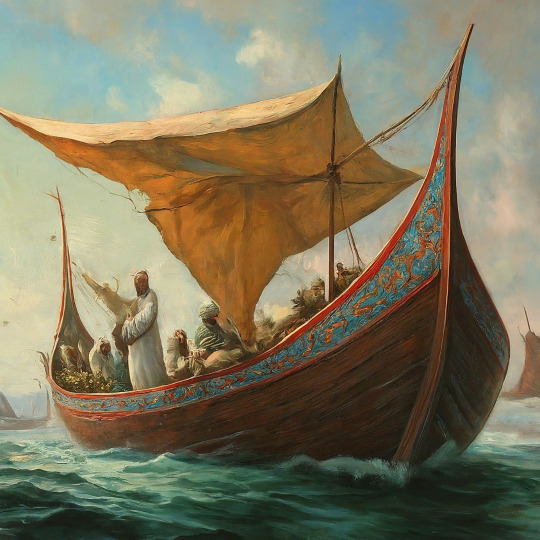
In the rich legacy of Islam, trade emerges as a vibrant thread, stitching together diverse cultures and societies. The profound impact of Islamic trade on the spread of Islam, and its transformative influence in regions such as East Africa and Indonesia. Through engaging insights, we uncover the beauty of Islam as a unifying force that transcends borders and fosters connections among people.
Trade Routes as Pathways of Faith
Islamic trade flourished along the ancient Silk Road, acting as a conduit not only for goods but also for the exchange of ideas and beliefs. The Quran emphasises the importance of knowledge and learning, encouraging the pursuit of wisdom through interactions with different cultures.
O humanity! Indeed, We created you from a male and a female, and made you into peoples and tribes so that you may ˹get to˺ know one another. Surely the most noble of you in the sight of Allah is the most righteous among you. Allah is truly All-Knowing, All-Aware. Quran 49:13
Prophet Muhammad’s teachings promote fair and ethical trade practices, emphasising honesty and transparency in all transactions. These principles laid the foundation for a positive image of Muslims in the trading world.
‘Deal not unjustly, and you shall not be dealt with unjustly.’ (2:279)
‘God loves those who are fair and just.’ (49:9)
‘A truthful and trustworthy merchant will be in the company of the Prophets, the upright and the martyrs.’ (reported by Tirmidhi)
East Africa: Islamic Trade and Cultural Fusion
Islamic trade played a pivotal role in the cultural and religious fusion along the Swahili Coast creating a melting pot of cultural influences. The exchange of goods was accompanied by the exchange of ideas, leading to the flourishing of Islam in East Africa.
Muslim traders in East Africa became integral members of local communities, contributing to the socio-economic development of the region and making it one of the wealthiest regions in the world at the time. This interaction exemplified Islam’s emphasis on community and mutual support.
The maritime routes of the Indonesian archipelago served as conduits for Islamic traders, bringing not only spices but also the teachings of Islam. The Quran encourages exploration and appreciation of the diverse creations of Allah.
We will show them Our signs in the universe and within themselves until it becomes clear to them that this ˹Quran˺ is the truth. Is it not enough that your Lord is a Witness over all things? Quran 41:53
Islam took root in Indonesia, fostering unity amidst the diverse cultures of the archipelago. The Quran celebrates diversity of cultures and people, recognising it as a divine manifestation resulting in the spread of Islam to a plethora of different cultures worldwide, making a religion that started among the Arabs become a religion where only 20% of the Muslim population are Arab.
The beauty of Islam unfolds through its impact on trade, acting as a catalyst for cultural exchange, knowledge dissemination, and exchange among diverse communities. As we reflect on the historical journeys of Islamic traders, let’s appreciate the way Islam’s principles of fairness, honesty, and community building have left an indelible mark on the regions they touched.
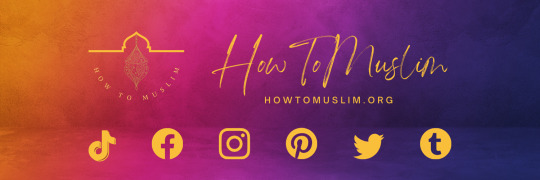
References:
Quran 49:13
Quran 96:1–5
“Islam in East Africa.” BBC Religions, www.bbc.co.uk.
#islamdaily#muslim#allah#quran#islamic#islamiyet#islamicreminders#islam#mosque#new article#new blog#newblog#trade#history#culture#human history
30 notes
·
View notes
Text
Since Indonesia’s bloody anti-communist purge in the 1960s, politics in the archipelago nation have largely been dominated by centre-right forces. But a newly formed leftist party believes it can garner enough popular support to start changing that.
At a press conference in Jakarta on January 3, Indonesia’s Labour Party (Partai Buruh) chief Said Iqbal said his party’s electability was on the rise in the lead-up to the February 14 general election.
Said, who is also president of Indonesia’s Trade Unions Confederation, cited a recent survey by pollster Risetindo Barometer as evidence for his claim.
“An independent survey was conducted in 18 cities involving 1,200 respondents, and found 67.8 per cent of workers or 3,390,000 voters, both unionised and non-unionised, planned to vote for the PB,” he said.
Said pointed out that the figure would correspond to 2.3 per cent of Indonesia’s total number of eligible voters. “This means we only have 1.7 per cent to go before crossing the 4 per cent parliamentary threshold to make it into the House of Representatives (DPR).”[...]
“PB [could] be the first centre-left party to accomplish this feat. Its success in qualifying for the election was in itself remarkable, given that another centre-left party, Prima, didn’t,” [...]
In 2020, President Joko Widodo signed the Omnibus Law aimed at easing business by cutting red tape. But unions and labour activists branded the legislation as a major setback for labour rights and protections.
Some controversial clauses include reductions in the size of severance pay and paid leave. Activists also claim the law provides employers with new loopholes to deny workers permanent work status and other benefits.[...]
“Our party has decided not to back any of the three presidential candidates because our condition for support was a signed political contract spelling out the respective candidate’s commitment to revise the Omnibus Law,” he said.
None of the candidates agreed to do so, he said[...]
uruddin said his party’s strategy revolved around “real issues affecting people’s livelihoods” which have been neglected by the more established parties, citing the government-managed universal healthcare system (BPJS) as an example.
“While the BPJS seeks to cover the healthcare of all Indonesians, in reality around 20 per cent of the population is unable to access it, largely because they can’t afford the monthly dues,” he said.
Nuruddin said that at the city level in Surabaya, he had started lobbying officials to provide subsidies for poor residents – including itinerant construction workers, vagabonds and small traders – so that they could be covered under the scheme.
He said the PB had instigated a new mechanism in Indonesia’s electoral process known as “constituent recall”, under which voters could demand the removal of their representative if he or she were deemed to be in serious breach of voter aspirations.
9 Jan 24
25 notes
·
View notes
Text
#forex#broker#forex trading#forex broker#trading forex#broker forex#forex trader#forexmarket#trading foreign exchange#expert advisor#ea#robot trading#investasi bodong#penipuan#samtrade#tjahjadi rahardja#trader indonesia#indonesia#berita valas
0 notes
Text
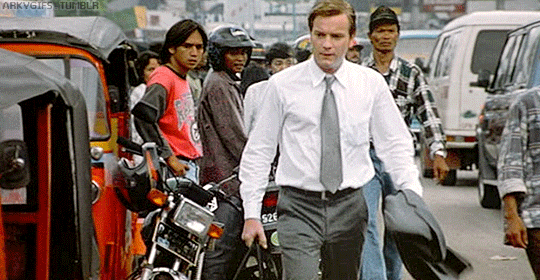
EWAN McGREGOR NICK LEESON in JAKARTA 🇮🇩
Rogue Trader (1999)
#Rogue Trader#James Dearden#Nick Leeson#Ewan McGregor#indonesia mentioned!! 🫵☕#arkygifs#by far the biggest surprise of this movie
0 notes
Photo
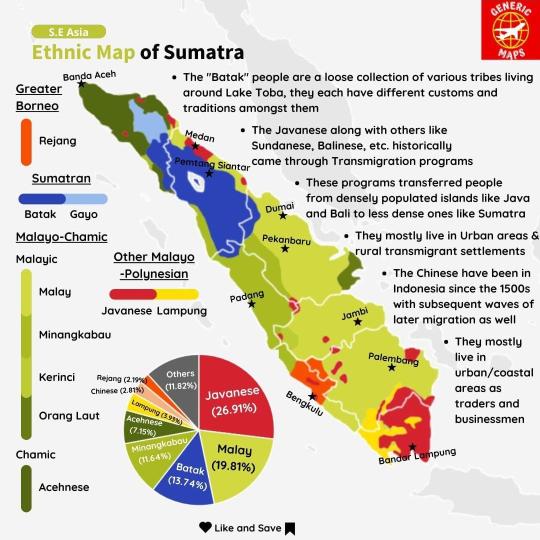
Ethnic Map of Sumatra.
by generic_maps
• The "Batak" people are a loose collection of various tribes living around Lake Toba, they each have different customs and traditions amongst them
• The Javanese along with others like Sundanese, Balinese, etc. historically came through Transmigration programs
• These programs transferred people from densely populated islands like Java and Bali to less dense ones like Sumatra
• They mostly live in Urban areas & rural transmigrant settlements
• The Chinese have been in Indonesia since the 1500s with subsequent waves of later migration as well
• They mostly live in urban/coastal areas as traders and businessmen
86 notes
·
View notes
Text
IDNL/Neshiran headcanons (part 1)
Because someone has to do it
Before anyone comes after me, know that the biggest Ned/Indonesia shippers I’ve seen around are Indonesian ourselves. Top Ned is most popular in Indohetalia side of fandom, which I also don’t mind ofc, but I personally am more top Indo.
I guess these will be concentrated around their first meetings. That being said:
I don’t put an exact age on Indonesia, but I don’t subscribe to the idea that Ned ‘found’ a child Indonesia. Sure, modern/unified Indonesian republic is totes different from precolonial kingdom era Indonesia(n islands or Nusantara) and we learned to unify under (modern) Indonesian ideology only during colonial era, but yknow, it doesn’t make much sense for me that Indonesia was only a child when Ned found him. So I headcanon that Indonesia already looked to be around 18-19 years old when Ned met him for the first time, that is, in 1609 around (in modern time Indonesia looks to be late 20s)
Indonesia was a traveler/sailor and a trader between precolonial kingdoms. So he was not limited to just one or two kingdoms, he moved around a lot and was a good trusted friend for precolonial kings/sultans and the personifications of kingdoms (doesn’t make sense if they didn’t exist)
Ned wasn’t the first white dude Indonesia has seen in his side of Nusantara (that would be Portugal in the 1500s). So he actually could hazard a guess as to why Ned came; spice, and having all of it for himself.
Indonesia (ofc at this time wasn’t called Indonesia lol) is a curious dude and always likes to learn about/befriend new people, especially interesting foreigners, even if he knew the whites would end up fighting with him anw. By the time Ned came to Nusantara, Indonesia has met Portugal and Spain who fought with each other and also against him/with him (look up Ternate-Tidore sultanates conflicts in Maluku)
(The thing was that he was sure Ned would give up sooner or later because Spain and Portugal both kinda sucked)
(Obviously Ned didn’t, lol, even after similar beatings)
(Damn.)
He has never been an innocent dude or a prude lol, because yknow, India taught him personally as a kid.
Indonesia and Ned fooled around during this time meheheheh. They didn’t have any relationship or anything tho, and while Indonesia thought Ned was pleasant-looking (an impression shared by Ned about him) he wasn’t that much impressed by everything else. It was just a nice fling while it lasted.
Their intimate encounters were nice tho, 10/10 it kept Ned awake at night
Surely, Ned knew Indonesia was a being <<like him>> only that he didn’t know what he actually was. Not that Indonesia told him anything, and not that Indonesia had a clear idea about his own purpose at that time. But Indonesia was Goddamn good in what he did, aka sex and trades and local diplomacy and everything important about the islands and these were why Ned kept pursuing him. Also sex
Ned worked in this company (VOC) and he set out to make Indonesia work for him.
He had to get Indonesia no matter what because he was the key to everything.
8 notes
·
View notes
Text
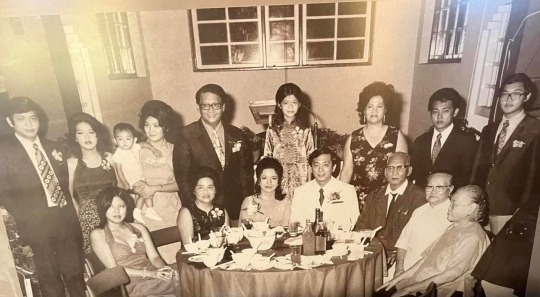
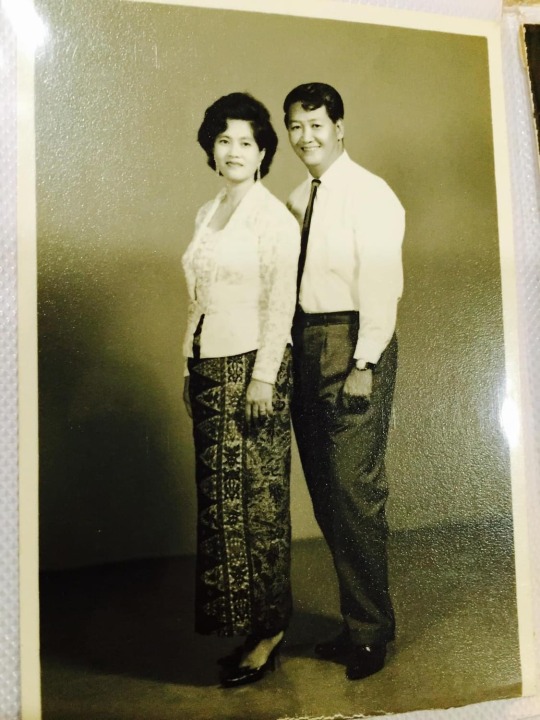
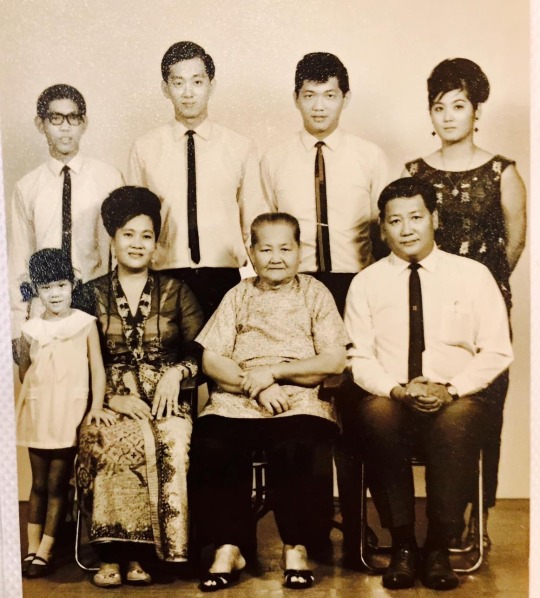
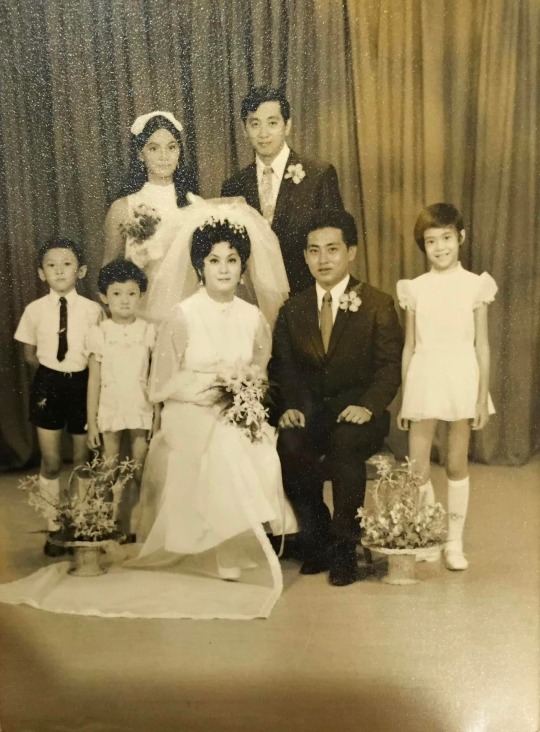
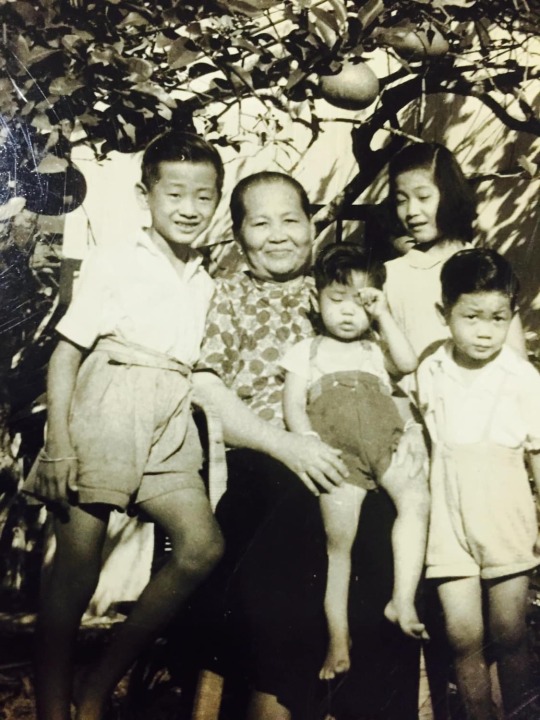
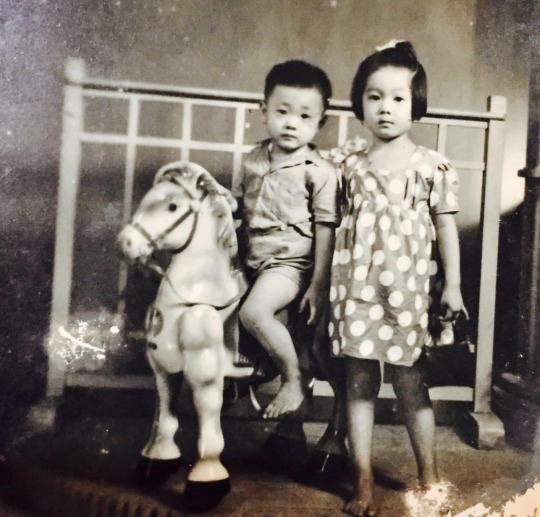
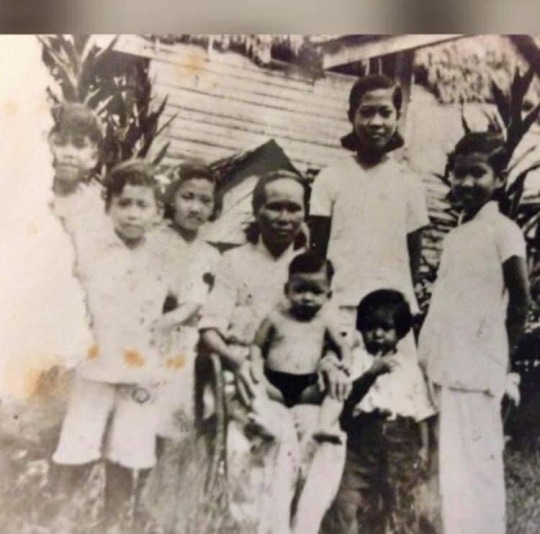
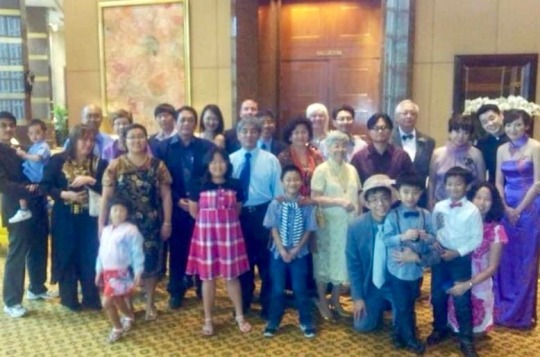
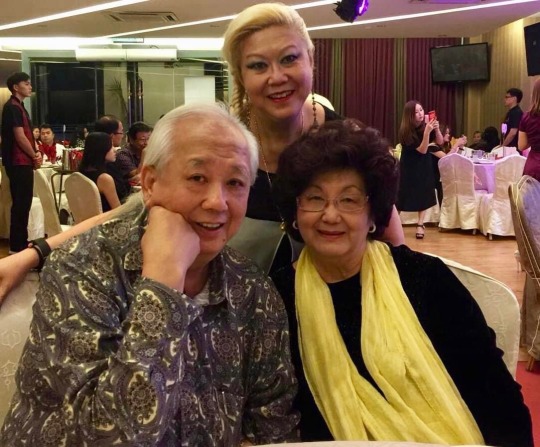
A HAKKA FOLK SONG
I am going to share a poignant Hakka folk song my mother used to sing to me since I was little. This Chinese dialect song is about a young Hakka wife singing her heart out, on how she misses her husband who has sailed away on a long business trip oversees.
My mother’s eyes swelled with tears every time she sang to me. She missed my dad whenever he traveled by boat to Indonesia on business. He was a trader and was often out of town.
I am sharing only the chorus in romanized Hakka and in Mandarin (with English translation).
I composed the remaining twelve verses from memory, and translated them into English. I recalled this lovely folk song in the Hakka dialect of our mother’s tongue.
SAILING AWAY
Chorus:
想起浪阿
siong kee lorng ah ...
想起浪阿
siong kee lorng ah ...
想起阿哥過外港
siong ki Ah Kor ko ngwai kong ....
I recall the waves, ah ...
I recall the waves, ah ...
I think of Ah Kor sailing away ...
(Ah Kor, Elder Brother, is a polite way to address the Husband. Traditional Hakka women do not call their husbands by name).
Standing by the shore
I watch you sail away
The sea has taken you
To a distant land
When I close my eyes
I see the billowing
My thoughts travel to you
Carried by the waves
I pray that you are safe
Oh! My heart is troubled
My Ah Kor has gone abroad
I am left here on the shore ....
Chorus:
想起浪阿
siong kee lorng ah ...
想起浪阿
siong kee lorng ah ...
想起阿哥過外港
siong ki Ah Kor ko ngwai kong ....
©Johnny J P Lee
29 May 2023
My FamiLEE Hakka Folk Song
Photos of my FamiLEE and the Bong Family of my Mum. 9 Photos in sequence - my wedding, mum & dad, FamiLEE, me as Best Man at my sis’s wedding, with paternal grandma, me and my sis, Bong Family (my mum is the eldest), my family at my son’s wedding, me and my two sisters at our nephew’s wedding.
#poetryportal#writerscreeds#inkstainsandheartbeats#bitsofstarglow#poeticstories#spilledwords#writingthestorm#poetscommunity
16 notes
·
View notes
Text
Finally I’ve watched Bad Batch episode 13!
Time to scream into the void again :D
Okay so now they’re working with Phee instead of Cid?
Tech and Gonky bonding time I am soft ;-;
Phee speaking truths about Omega and the others needing some outside influence for once
Ahhhh there’s Cid! Of course
‘Pabu’ just makes me think of the red panda in Legend Of Korra and I cannot turn off that association
Why do Tech and Phee look at each other like that
Oh my god are they gonna be a thing?
I have absolutely no reason to but still I’m somehow not happy with that
I hope that the privileged clones finding paradise will not make them settle down but instead finally join the fight to help others
Fr Omega shines so much more when with someone her own age, a normale person, suddenly I’m interested in her as a character again! Hope it’ll happen more often
Oh my god a tsunami?!? Love the accuracy of that
I do kinda like Phee being not just another bounty hunter or dubious trader or smth, but actually being somewhat of a resistance person
I know why Tech and her initially bothered me; I never thought of him as anything but gay
I am warming to them though. Tech can be bi, as a treat
This does bring back memories of when the Christmas 2004 tsunamis hit Indonesia
All in all a visually very interesting episode, and one that made me like Omega again. Storywise it does feel like a step back from the last two, but I honestly hadn’t expected anything to be able to top last week’s episode
16 notes
·
View notes
Text
The Spread of Islam to Malaysia & Indonesia
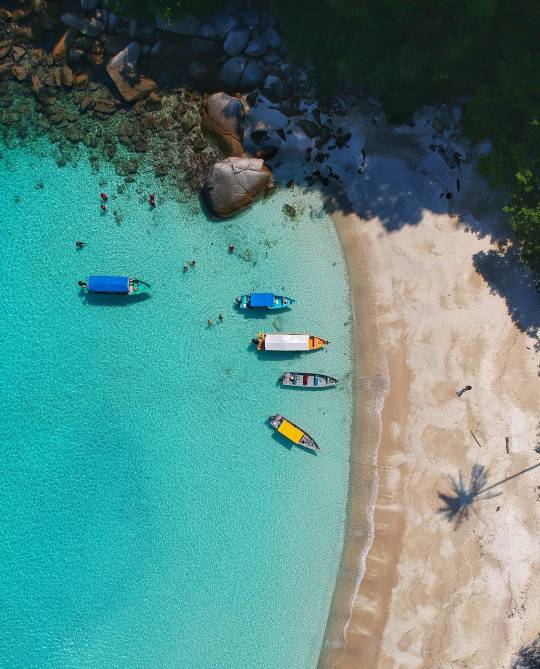
Islam’s journey to Malaysia and Indonesia is a story of peaceful coexistence and the gradual acceptance of Islam. Islam first reached Southeast Asia through trade routes, primarily conducted by Arab and Indian merchants. These traders brought not only goods but also the teachings of Islam, which gradually took root among the local populations and was closely linked to trade and cultural exchange. Muslim traders established settlements along the coastlines, where they interacted with the local communities, shared their beliefs, and built mosques and Islamic institutions foundational to Muslim communities.
Let there be no compulsion in religion, for the truth stands out clearly from falsehood.1 So whoever renounces false gods and believes in Allah has certainly grasped the firmest, unfailing hand-hold. And Allah is All-Hearing, All-Knowing. Quran 2:256
The conversion to Islam in Malaysia and Indonesia was largely peaceful, Sufi missionaries traveled to remote areas, spreading Islam through their exemplary conduct, spiritual teachings, and community work. Islamic teachings emphasised the importance of kindness and justice towards all people, regardless of their faith resulting in great tolerance and co-existance with non-Muslims
Allah does not forbid you from dealing kindly and fairly with those who have neither fought nor driven you out of your homes. Surely Allah loves those who are fair. Quran 60:8
Islam, as practiced in Malaysia and Indonesia today, upholds the rights of non-Muslims. Both countries have constitutions that guarantee freedom of religion and protect the rights of religious minorities to practice their faith without discrimination.
One such example is in Bali, which is predominantly Hindu, and the local government ensures that Hindu traditions and practices are preserved and respected. Balinese Hindus have the freedom to celebrate their religious festivals, maintain their temples, and uphold their cultural heritage without any restrictions.
“To you be your religion, and to me my religion” Quran 109:6
Prophet Muhammad (peace be upon him) set the example of treating non-Muslims with kindness and compassion, said:
“Whoever harms a non-Muslim citizen, I am his adversary, and I shall be an adversary to him on the Day of Judgment” (Bukhari).
The spread of Islam to Malaysia and Indonesia was marked by peaceful interaction, cultural exchange, and the embodiment of Islamic values such as tolerance and compassion. Today, these countries stand as shining examples of pluralistic societies where people of different faiths live harmoniously, guided by the timeless principles of Islam.
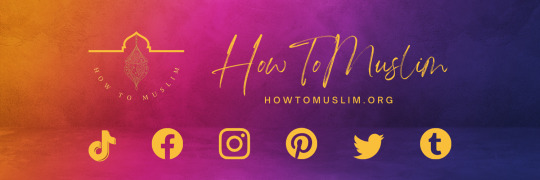
#islamicreminders#muslim#allah#quran#mosque#islamic#islamdaily#islamiyet#islam#new article#malaysia#indonesia
10 notes
·
View notes
Text
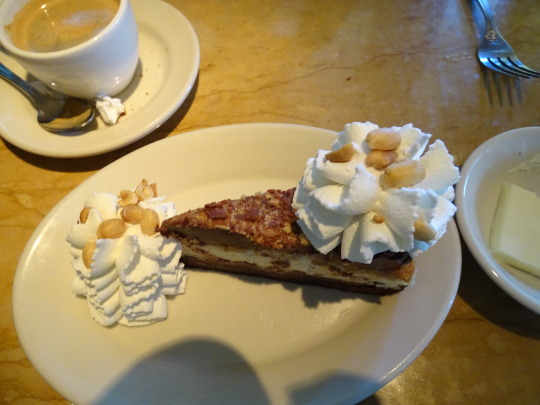

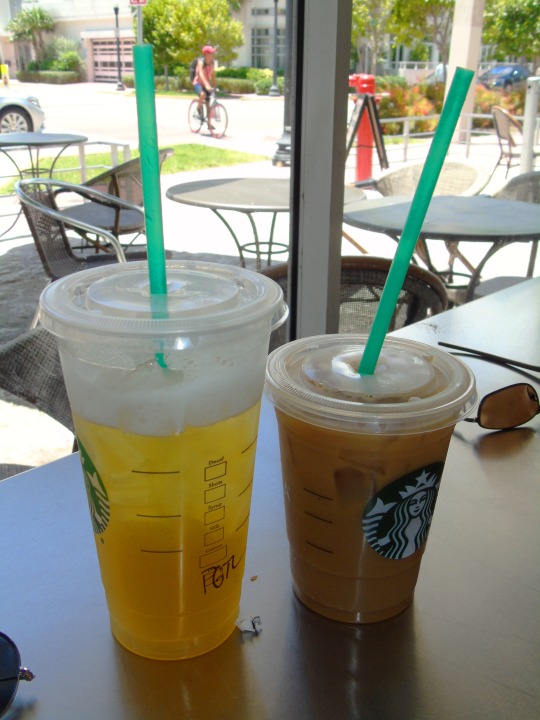
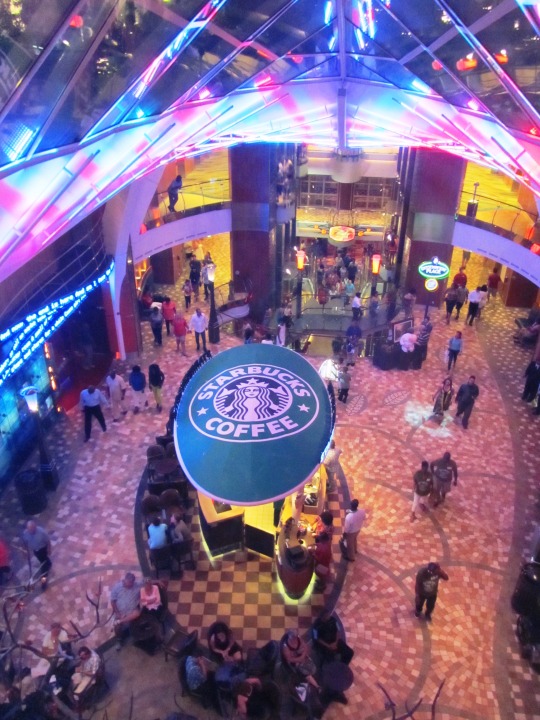

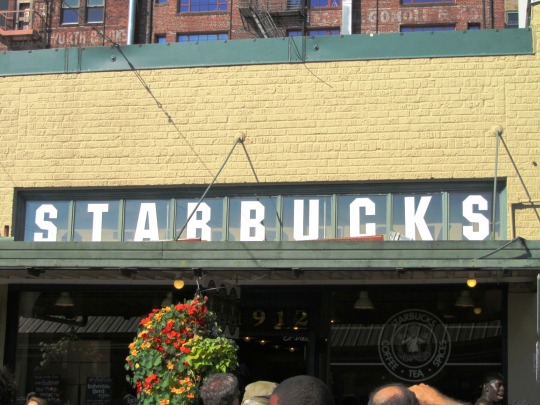
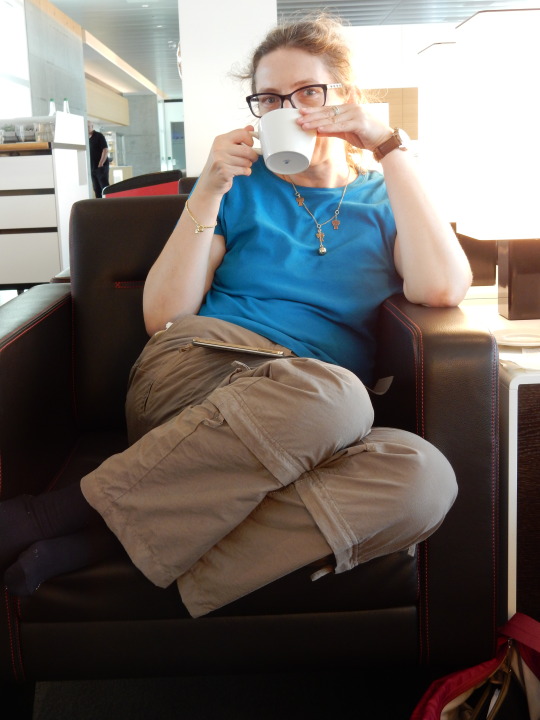
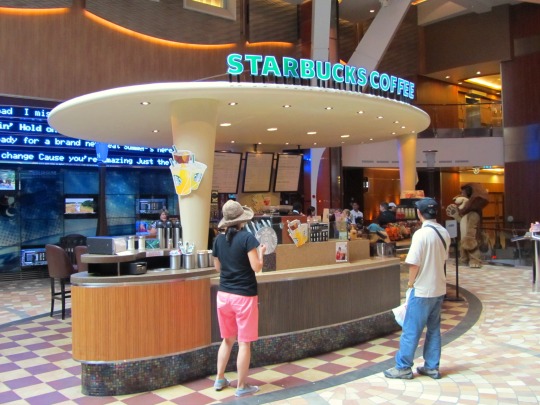
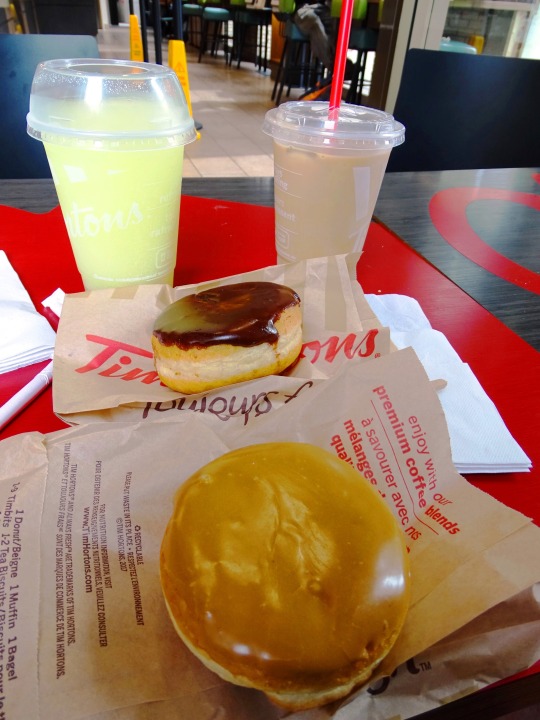
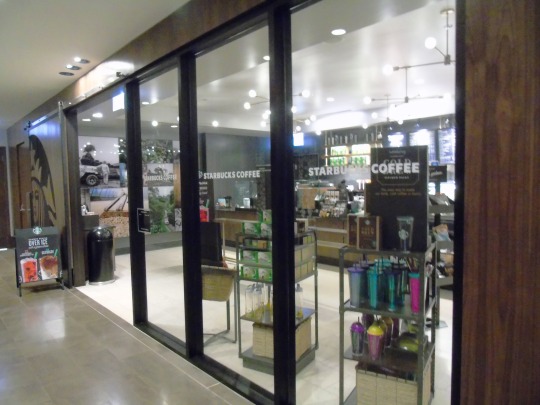
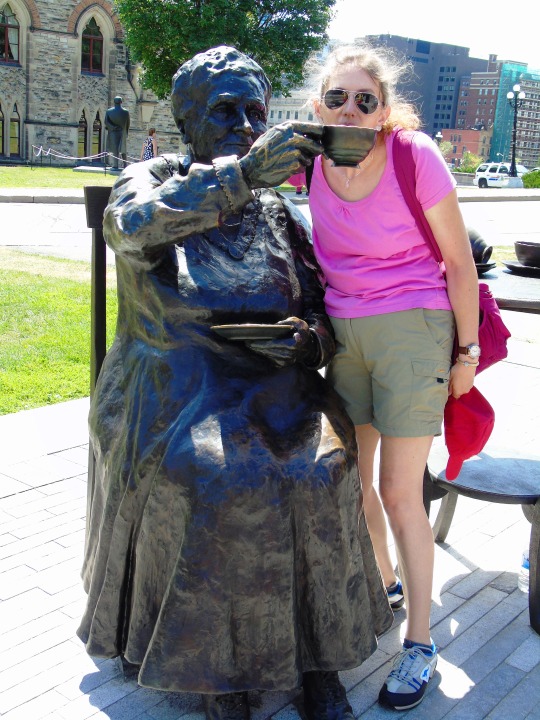
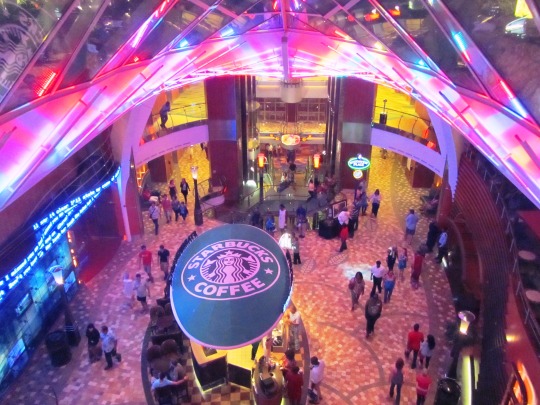
National Coffee Day
Whether getting one to go or lingering over a second cup, on September 29 be sure to observe National Coffee Day!
Ah, the perfect cup of java. According to an expert cupper (a professional coffee taster), there are four components of a perfect cup: aroma, body, acidity, and flavor.
From the moment the average coffee lover opens a fresh bag of coffee beans, the aroma beckons, percolating the senses. Even those who don’t drink coffee tend to enjoy the fragrance a roasted bean casts.
When determining the body of a coffee, the bean, the roast, and the brew are all factors. The bean affects the texture of the coffee, whether its silky, creamy, thick or thin on the tongue and throat. However, the darker the roast and how it is brewed will alter the feel of a coffee’s body, too. Grandpa’s motor oil blend versus the coffee shop around the corner’s silky smooth, well-practiced grind have entirely different bodies.
The region a coffee is grown determines its acidity. The higher the elevation the coffee grows, the higher the quality and the acidity. These coffees are considered brighter, dryer, even sparkling by cuppers.
When it comes down to it, coffee lovers cherish the flavor as well as the caffeinated boost this roasted bean gives morning or night, black or with cream and sugar. Hot or cold it provides enjoyment even when decaffeinated!
There are many legendary accounts of how coffee first came to be, but the earliest credible evidence of either coffee drinking or the knowledge of the coffee tree appears in the middle of the 15th century in the Sufi monasteries around Mokha in Yemen. It was here coffee seeds were first roasted and brewed, much like they are prepared today. Yemeni traders brought coffee back to their homeland from Ethiopia and began to cultivate the seed.
In 1670, coffee seeds were smuggled out of the Middle East by Baba Budan, as he strapped seven coffee seeds onto his chest. The first plants grown from these smuggled seeds were planted in Mysore. It was then that coffee spread to Italy, to the rest of Europe, to Indonesia and the Americas.
Brazil produces more coffee in the world than any other country followed by Colombia. More than 50 countries around the world grow coffee, providing a delicious variety for the indulgence of steamy cups of the black drink for connoisseurs to consume.
Source
#Chocolate Caramelicious Cheesecake#Canadian Maple Donut#Boston Cream Donut#ice coffee#frozen lemonade#Women are Persons By Barbara Patterson#I don't like coffe#I love tea#travel#Seattle#Washington#Chicago#Ottawa#Ontario#Canada#vacation#USA#original photography#National Coffee Day#iced coffee#Tim Hortons#MS Allure of the Seas#NationalCoffeeDay
2 notes
·
View notes